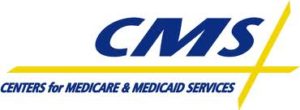New Help With Addressing Low-Income Patients’ Social Services Needs?
One of the long-time barriers to states and hospitals addressing low-income patients’ social services needs and the social determinants of health has been a lack of resources for such assistance. Medicaid, in particular, has not been a financial participant in such efforts.
But that may be changing.
The new federal Medicaid managed care regulation, updated nearly two years ago, allows for the inclusion of some non-clinical services as covered Medicaid services and for funding for such services to be folded into Medicaid managed care plans’ capitation rates and medical loss ratios. The updated regulation also encourages greater coordination of care for Medicaid patients and coverage for long-term services and supports in the home and community for medically qualified patients.
 Because they serve so many low-income patients, Pennsylvania safety-net hospitals are especially interested in policy changes that might enable them to serve such patients more effectively.
Because they serve so many low-income patients, Pennsylvania safety-net hospitals are especially interested in policy changes that might enable them to serve such patients more effectively.
The Commonwealth Fund has taken a closer look at how the 2016 Medicaid managed care regulation may facilitate addressing the psycho-social needs of Medicaid beneficiaries. Go here to see its report “Addressing the Social Determinants of Health Through Medicaid Managed Care.”

 In particular, SNAP opposes the manner in which CMS would treat payments from Medicare and third-party payers made on behalf of Medicaid-eligible individuals.
In particular, SNAP opposes the manner in which CMS would treat payments from Medicare and third-party payers made on behalf of Medicaid-eligible individuals.



